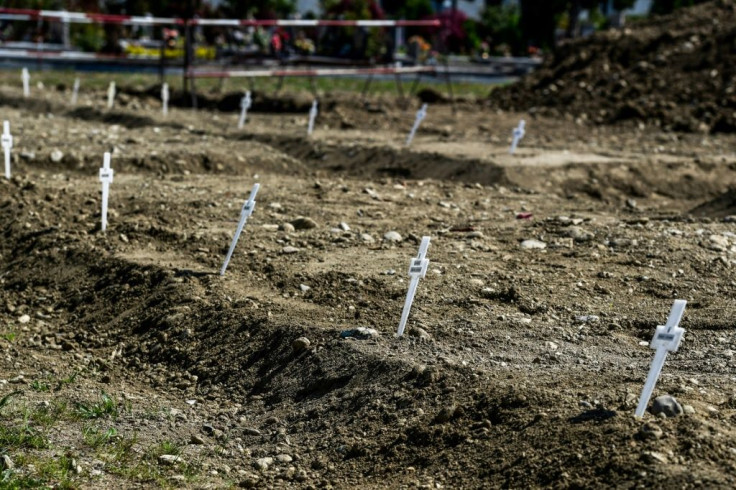Coronavirus Vaccine Shows Promise In Monkeys, 'Provided Partial Or Complete Protection' Against COVID-19
KEY POINTS
- A small study by Chinese firm Sinovac Biotech shows none of the eight monkeys involved in the trial of a COVID-19 vaccine developed a full-blown infection
- Sinovac recently started phase one human clinical trials in Jiangsu province
- Sinovac intends to launch traditional phase three efficacy trials
A candidate COVID-19 vaccine produced the old-fashioned way and not via genetic manipulation has shown encouraging success in protecting rhesus macaque monkeys from the disease and could probably do the same for humans. Human trials of the candidate vaccine developed by Sinovac Biotech, a privately held Beijing-based company, began April 16.
The limited animal trials saw eight rhesus macaque monkeys inoculated with the candidate vaccine. Three weeks later, SARS-CoV-2 (severe acute respiratory syndrome coronavirus 2), the virus that causes COVID-19, was introduced into the monkeys’ lungs through tubes down their tracheas. Sinovac Biotech researchers said none of the eight developed a full-blown COVID-19 infection.
The study published April 19 on the preprint server bioRxiv reveals the monkeys given the highest vaccine dose had the best response. It said researchers couldn't detect SARS-CoV-2 in the pharynx or lungs of any of the monkeys seven days after the animals received the virus. On the other hand, four control monkeys developed high levels of viral RNA in several body parts and severe pneumonia.
The results “give us a lot of confidence” the vaccine will work in humans, claimed Meng Weining, Sinovac’s senior director for overseas regulatory affairs.
The study, however, noted some of the lower dosed monkeys had a “viral blip,” or a spike, but the vaccine also appears to have controlled the infection. Sinovac researchers said they didn't find any evidence of lung damage in the vaccinated monkeys that produced relatively low levels of antibodies. While lessening concerns about vaccine enhancement, this finding means more work on the vaccine needs to be done.
Other animal vaccine experiments against the related coronaviruses, that cause SARS and MERS, found low antibody levels might lead to aberrant immune responses when an animal is given the virus. This result enhances the infection and causes pathology or damage in their lungs.

Sinovac recently started phase one clinical trials in Jiangsu province, north of Shanghai. The trial aims to gauge safety and immune responses in 144 volunteers. An equal number of participants will receive the high and low doses or a placebo. Using placebos can help better evaluate if the vaccine causes any dangerous side effects, said Meng. The company hopes to start phase two studies by mid-May. These studies will have the same design but enroll more than 1,000 people. Results are expected by the end of June.
Sinovac intends to launch traditional phase three efficacy trials that compare the vaccine with a placebo in thousands of volunteers. It also discussed joining international vaccine trials being organized by the World Health Organization.
There are, however, concerns about the design of the animal trials. Douglas Reed of the University of Pittsburgh said the number of monkeys (12) is too small to yield statistically significant results. He's also developing and testing COVID-19 vaccines in monkey studies. It was also pointed out monkeys don’t develop the most severe symptoms SARS-CoV-2 causes in humans.
© Copyright IBTimes 2024. All rights reserved.





















